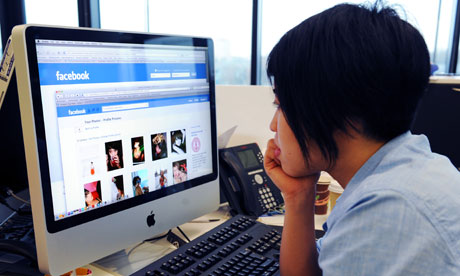So, Just How Much Does Social Media Impact Our Lives?
Social media has to rank up there as one of the most divisive topics, not only in education, but in our society overall. Most people can likely rattle off the usual arguments on both sides-it increases connectivity, brings the world closer together, makes the sharing/finding of information easier than ever before; it can lead to body image issues, cyberbullying, misinformation, and becomes an addiction. I will say that my own attitude toward social media seems more shaded toward the negative side-I was a much bigger user when I was younger, but have seen the value I place on social media dropping over time. Part of me feels like this is partially due to the fact that more and more seems to be coming out about the dangers of social media, and the negative trends it has inspired among students (devious licks, slap a teacher, mess up school signs). This is all on top of the fact that social media has been a factor or cause of more conflicts amongst my students than I can count. However, I understand that social media is not going anywhere, and that my own experience might not be reflective of the trends of social media use overall. After doing some further research, I made some interesting findings.
 |
| Image source Does unfriending Facebook really lead to happiness? |
The first article I read was from CNN, titled “Leaving Facebook makes people happier but less informed, study says”; I know the title kind of makes it seem like there is not much left to discuss, but I did think this was important to be aware of the dual consequences of ‘leaving’ social media. According to author Garcia (2019), people in the study described “being happier while not using the site, being less active online, and using other social-media sites less. The study found that subjects were less polarized politically but less-informed about factual news after being off Facebook for a month.” One interesting takeaway from this point was that leaving Facebook actually made users less active overall, so it wasn’t like they were spending the same amount of time online and just altering how much was spent on each site. I also feel it important to note that, for all the talk about social media spreading misinformation, people were actually less informed when they were not checking Facebook, than if they had continued to use it. I think this helped remind me that, while there is definitely information that is purposefully inaccurate, there is also a lot of good information that can be found on social media as well. Another important point from this article was that in the study, “people said they had about an hour more free time a day while their accounts were deactivated. Once the study was over, the majority chose to reactivate their Facebook accounts, though most continued to use the social network less” (Garcia, 2019). My main takeaway from this point is that while giving up social media might not be a ‘forever’ move if people try to take it, even just getting off for a little while can create less of a reliance on it overall. I just also couldn’t help but calculate than an extra hour per day would mean 365 extra hours per year. Assuming one is awake for about 16 hours per day, this comes out to over 22 extra days of time per year…if I was given the choice of using Facebook for a year, or having an extra three weeks to do with what I want…that makes it seem like a no brainer (I realize that’s much easier to rationalize when it comes off as an all-or-nothing like that).
 |
| Image Source |
One overarching question I have regarding the findings in both of these articles comes out of the fact that both of them were published in 2019, so the data was collected before the pandemic, and all of the changes that brought with it. I would be interested to know if the same findings still held up. If I was to guess (again, nothing by my own thinking to go off of), I would think that leaving Facebook would create a similar experience for people, because the only major change I could imagine would be potentially more misinformation being present there for people to not have to grapple with. However, in the study conducted among students, I would be interested to know if the levels of unhappiness experienced by students would be similarly connected to the things that the study found. Again, I have no major reason to imagine findings would be radically different, I just know that the experiences of students overall have been so altered by the pandemic that I would be interested to know if this was the case as well.
In terms of how I could use this information with students, I think really it just sparks the reminder that looking at the whole student when it comes to happiness is a must. Yes, teaching about responsible use of technology is important, as is talking about the positives and negatives of social media, especially as kids are leading more and more digital lives. However, there are also the more traditional topics of getting enough sleep, cyberbullying, and exercise that must also be accounted for. None of them are going to be a cure-all as far as keeping students happy, because they all matter, together.
References
Garcia, A. (2019, January 31). Leaving Facebook makes people happier but less informed, study says. CNN Business. https://www.cnn.com/2019/01/31/tech/facebook-deactivation-study-happiness-informed/index.html
Stevens, A.P. (2019, October 4). Social media doesn’t, by itself, make teens unhappy or anxious. ScienceNewsExplores. https://www.snexplores.org/article/social-media-doesnt-make-teens-unhappy-anxious-cyberbullying


Comments
Post a Comment